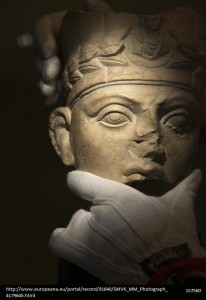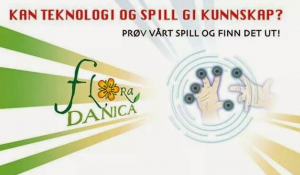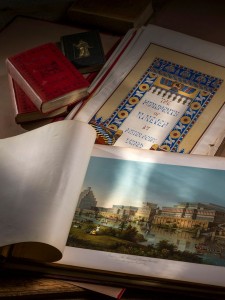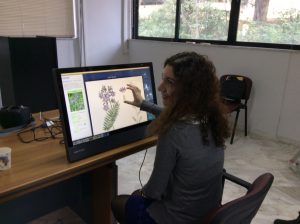Tag: UBrss
The issue of lost cultures or cultures under threat is nowadays more urgent than ever. Increasingly more archaeological sites are set as targets of terrorist attacks, leading to their severe damage or even th eir total destruction. Such numerous examples documented in recent times call for action.
eir total destruction. Such numerous examples documented in recent times call for action.
In the aftermath of these attacks, individuals or groups, spontaneously or more organized, were activated having as goal to preserve or reconstruct as much as possible of the threatened heritage. In this way, several – mainly crowdsourcing – projects made their appearance in the Web calling people and institutions to contribute in order to virtually rebuild the sites damaged or destroyed. Among the endangered sites recently declared as targets of terrorism are Palmyra, Mosul and Nineveh.
In a different angle, with the aim of spreading the word and knowledge on these sites, the topic of Lost Cultures was set as the theme of two new knowledge testing games. Created in the context of the project ARK4 and in collaboration with Europeana Research, these games constitute an initiative of the Digital Curation Unit, Athena RC, project partner of both Europeana Research and ARK4. Adding to a series of knowledge testing games initiated with a Children’s Literature quiz, these games attempted to reuse digital content from the Cultural Heritage field, and in particular Europeana, to reach a wider audience.
The first game entitled “Lost cultures 1: Nineveh of Henry Layard” focuses on the ancient sites of Nineveh and Nimrud, excavated by Austen Henry Layard in the 19th century. The second game (Lost Cultures 2), which reuses digital content entirely deriving from Europeana, focuses on the ancient site of Palmyra. Since its destruction, the ancient city of Palmyra in Syria has been a popular topic among archaeologists and the public and has been reconstructed in various ways, from crowdsourcing projects to 3D virtual modeling initiatives. These games, which have been widely circulated in social media, could be considered as another effort to preserve the memory of the sites of Palmyra and Nineveh.
For those of you who did not have the chance to visit those sites or for the lucky ones who did, give a try to these knowledge testing games and have a glimpse of these important heritage sites.
– See more at: http://research.europeana.eu/blogpost/lost-cultures-within-europeana#sthash.7gLjWyR8.co4fN0M4.dpuf
By Eliza Papaki

- Games in English
- Games in Norwegian
- Methodology: ARK4 applies user-centred methods and collects new narratives, to be shared by the national and regional community of libraries, schools and archives through surveys and interviews.
- Collaborators

Ark4 a digital heritage library, started in 2014 by NTNU University library and is exploring new ways to approach culture and heritage and attempts to re-use digital content from the Cultural Heritage sector, mainly deriving from Europeana and other libraries and museums to reach a wider audience through knowledge games. We also aim in creating engagement and educational activities in the immediate academic community, among colleagues and university students in the investigation of approaching the past from different angles.
Our main partner in this phase is Athena the Digital Curation unit and we collaborate with three archaeologists and IT experts.
We use visual material from old archives and create games with questions about endangered sites, Palmyra, Niniveh and Nimrud with the purpose to spread knowledge about past cultures that are now destroyed or even threatened.
Archaeologists have been playing a role in informing on the atrocities committed as a result of war and ethnic or nationalistic turmoil but there is always a demand for an approach that is not only theoretical but it contains actions and proactive protection. Such initiatives have been collaborating with Unesco and Icomos that are commited to protect sites in danger, either that is done through documentation or projects as CYARK500 or New Palmyra or through social media as Archaeology in Syria Facebook group , where professionals archaeologists from USA Europe and middle East participate in letting information about the destructions happening as they happen.
I believe that we as academics, have an obligation to keep these memories alive and not let them slide in oblivion. It is not a secret anymore that antiquities that are stolen from these countries are sold to the western countries and the money goes to finance weapons for the ones actually stealing and destroying those countries and its heritage. In Syria when the war started, there were armed groups that would destroy sites to lift up mosaics from the floors and sell them.
ARK4 is not providing a solution to all that but intends to create engagement and spread knowledge about those sites through educational workshops and gaming tools.

